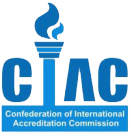Politicians at European level have recognised that education quality and accreditation are essential to the development and success of today’s knowledge society and economy. The EU’s strategy emphasises countries working together and learning from each other to improve education quality. Knowledge, and the innovation it sparks, are the EU’s most valuable assets, particularly as global competition becomes more intense in all sectors.
High quality pre-primary, primary, secondary, higher and vocational education and training are the fundament for Europe’s success. Lifelong learning education quality must become a reality across Europe. It is key to growth and jobs, as well as to allow everyone the chance to participate fully in society.
The new strategic framework identifies four long term strategic objectives:
- Making lifelong learning education quality and mobility a reality;
- Improving the quality and efficiency of education and training;
- Promoting equity, social cohesion and active citizenship;
- Enhancing creativity and innovation, including entrepreneurship, at all levels of education and training.
Based on these 4 strategic objectives, the Confederation of International Accreditation Commission- CIAChas developed a number of instruments to support students, learning providers, companies, guidance counsellors and educational authorities and allow them to fully exploit the potential of the education quality and accreditation in a global and transnational world.
RECOGNITION OF DIPLOMAS IN THE EUROPEAN UNION
Recognition of titles is an important instrument to facilitate the free movement of students and of graduates in Europe. In order better to understand the Union rules on the recognition of diplomas, a distinction must first be made between recognition for academic purposes (i.e.: you would like your title to be recognized because you wish to continue your studies) and recognition for professional purposes (i.e.: you would like your title to be recognized because you wish to work in a certain profession).
Academic recognition
There are not European provisions imposing recognition of diplomas (except for certain regulated occupations). That is why there are currently no diplomas that are recognized at European level for academic purposes. Universities, which are autonomous institutions, are entirely responsible for the content of their curricula and for awarding diplomas and certificates to students. The diplomas and certificates are recognized by the authorities of the Member State concerned. However, the European Commission has encouraged mutual recognition (for academic purposes) between the various education systems in Europe. ECTS credits become the best tool to facilitate academic recognition.
Professional recognition
As regards recognition for professional purposes, it is important to distinguish between professions that are regulated from the standpoint of qualifications and non-regulated professions. A profession is said to be regulated when it is a statutory requirement to hold a diploma or other occupational qualification in order to pursue the profession in question. In that case, the lack of the necessary national diploma constitutes a legal obstacle to access to the profession.
It is important to note that the EU Directives did not set up a system of automatic equivalence between diplomas. There is no such thing as a list of diplomas that are automatically recognized at European level, since a diploma is not recognized for its intrinsic value but according to the profession to which it gives access in the country which awarded it. It is for the person concerned to submit an individual application specifying clearly which occupation they wish to pursue.
If the profession you wish to pursue is not regulated, you are subject to the rules of the labour market and the behaviour of that market and not to any legal constraints with regard to your diploma. In that case, the system of recognition provided for by the EU Directives referred to above is not applicable. However, even if the said Directives are not applicable, you still have certain rights as regards the recognition of your diploma. The authorities of the host country are in any event obliged, under the Articles on freedom of movement of the EC Treaty, to take account of your professional diplomas and qualifications acquired in another Member State.
The CIAC Degree Validation Diploma
The Confederation of International Accreditation Commission- CIACdegree validation diploma constitutes an effective tool to demonstrate the quality and veracity of the training and certification acquired but it cannot guarantee automatic recognition by any receiving institution or company.

